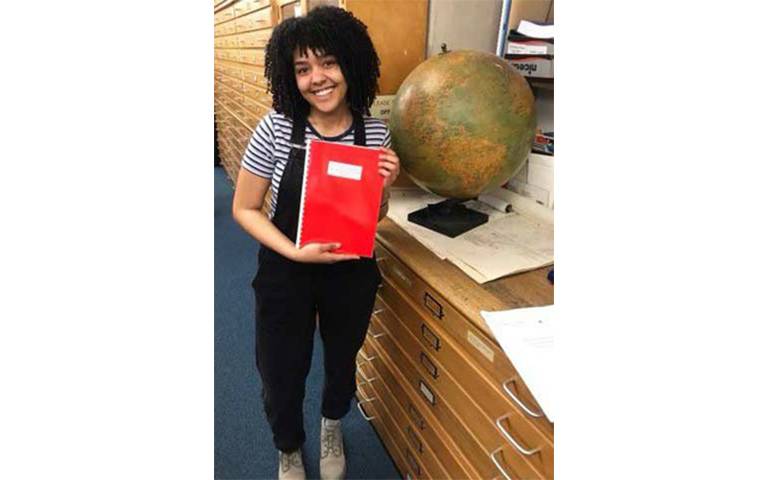Teki’s dissertation study wins First Prize
24 September 2019
Microplastics and the elusive otter

Teki Tetteh-Wright, who has just graduated with a BSc in Geography at UCL, has been awarded First Prize in the 2019 ECOS Student Article Competition.
ECOS is an online, open-access journal, published by the British Association of Nature Conservationists (ECOS), and widely read by conservationists across Britain. The Competition is open to undergraduate and postgraduate students.
Teki’s article addresses the increasing presence of the elusive Eurasian Otter in the UK over the past 40 years following the cleaning up of river systems. Recent studies in the Essex countryside, however, show a high presence of microplastics in otter diets. Collaborating with the Essex Wildlife Trust, Teki carried out her undergraduate dissertation research in the Stour and Colne river catchments. She investigated what otters in these rivers were eating by analysing 63 spraint samples, collected during the summer and autumn months to allow seasonal comparison.
The diversity of otter prey species varied between the two rivers and between the summer and autumn samples. As well as the expected species variety, plastic was also identified in samples from both the Stour and the Colne. Otters are located at the top of the food chain, so it is likely that the ingested microplastics were transferred into the otters through the predation of already contaminated prey. The contaminants were primarily microplastics, composed of synthetic rubbers with wide-ranging applications in tyres and latex, as well as belting, flooring, wire and cable insulation, and footwear.
Most past research into the plastic contamination of aquatic environments has focused mainly on marine settings, but microplastic pollution in freshwater systems has begun to receive more attention in recent years. Previous studies have implied that plastics could pose a threat to otter populations and a more certain threat to the prey species they rely on. More research is needed into the sources of microplastics, the contaminants they absorb, how they are transported and the impacts they may have on wildlife.
Teki’s paper will be published in ECOS in Autumn 2019.
 Close
Close

